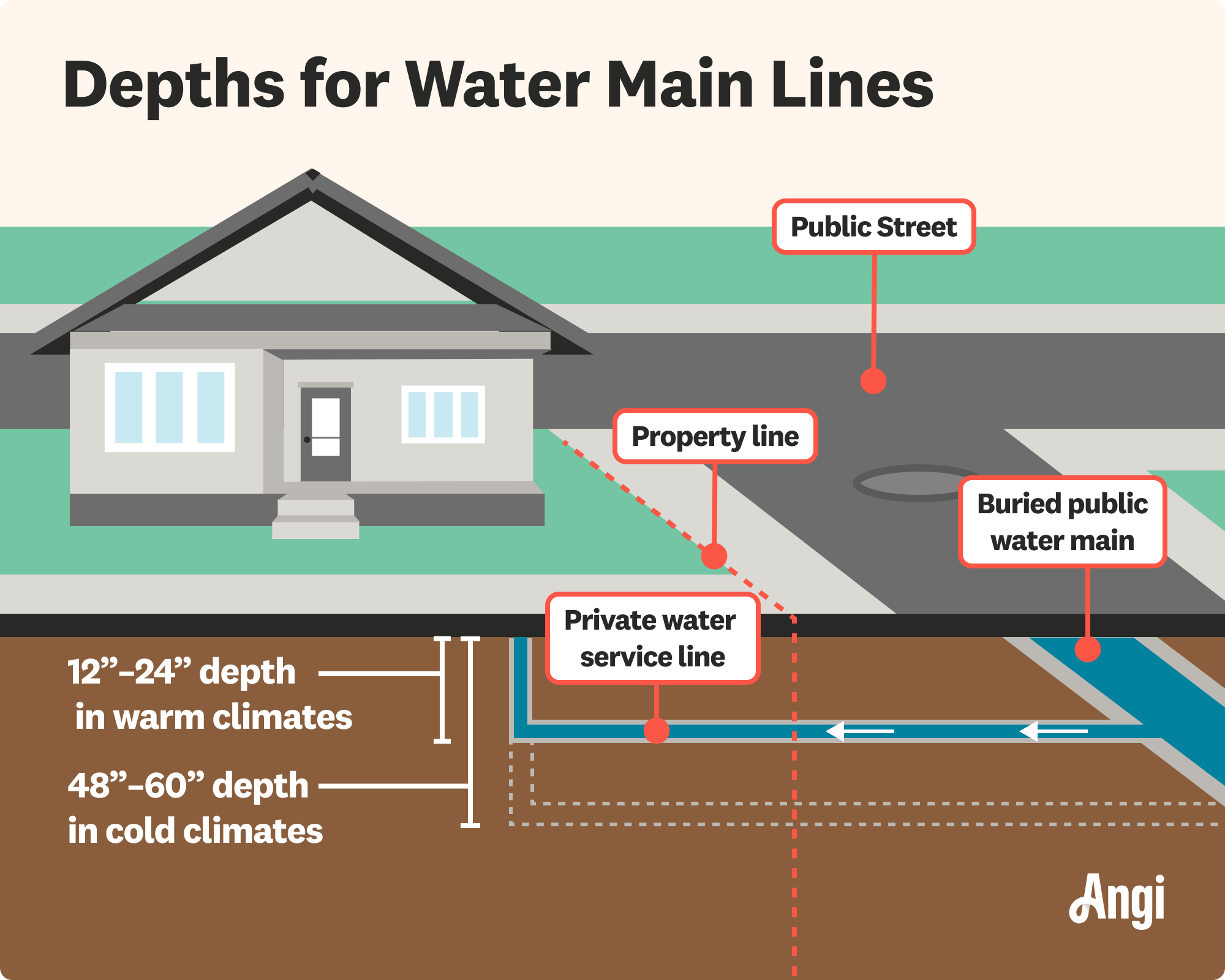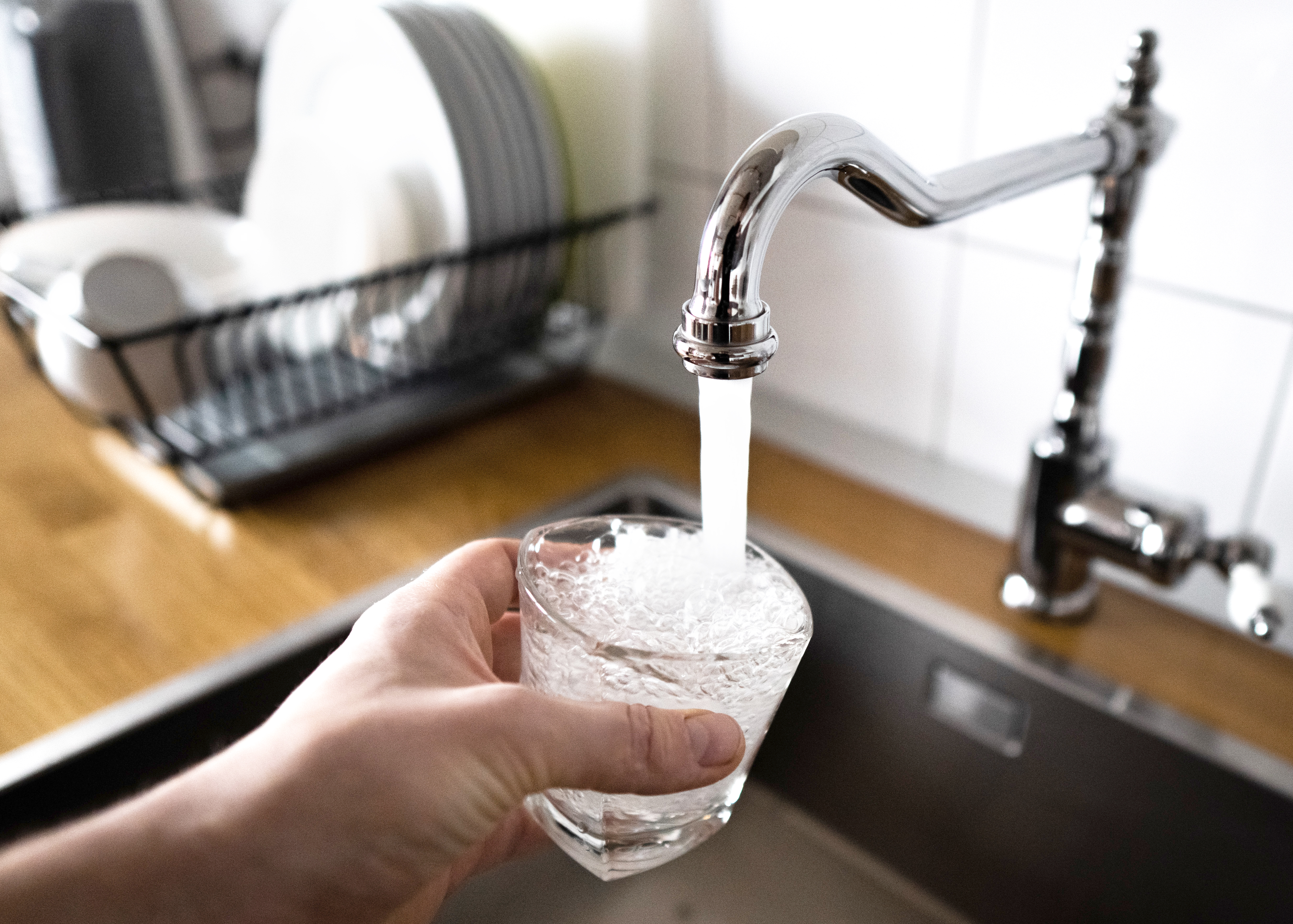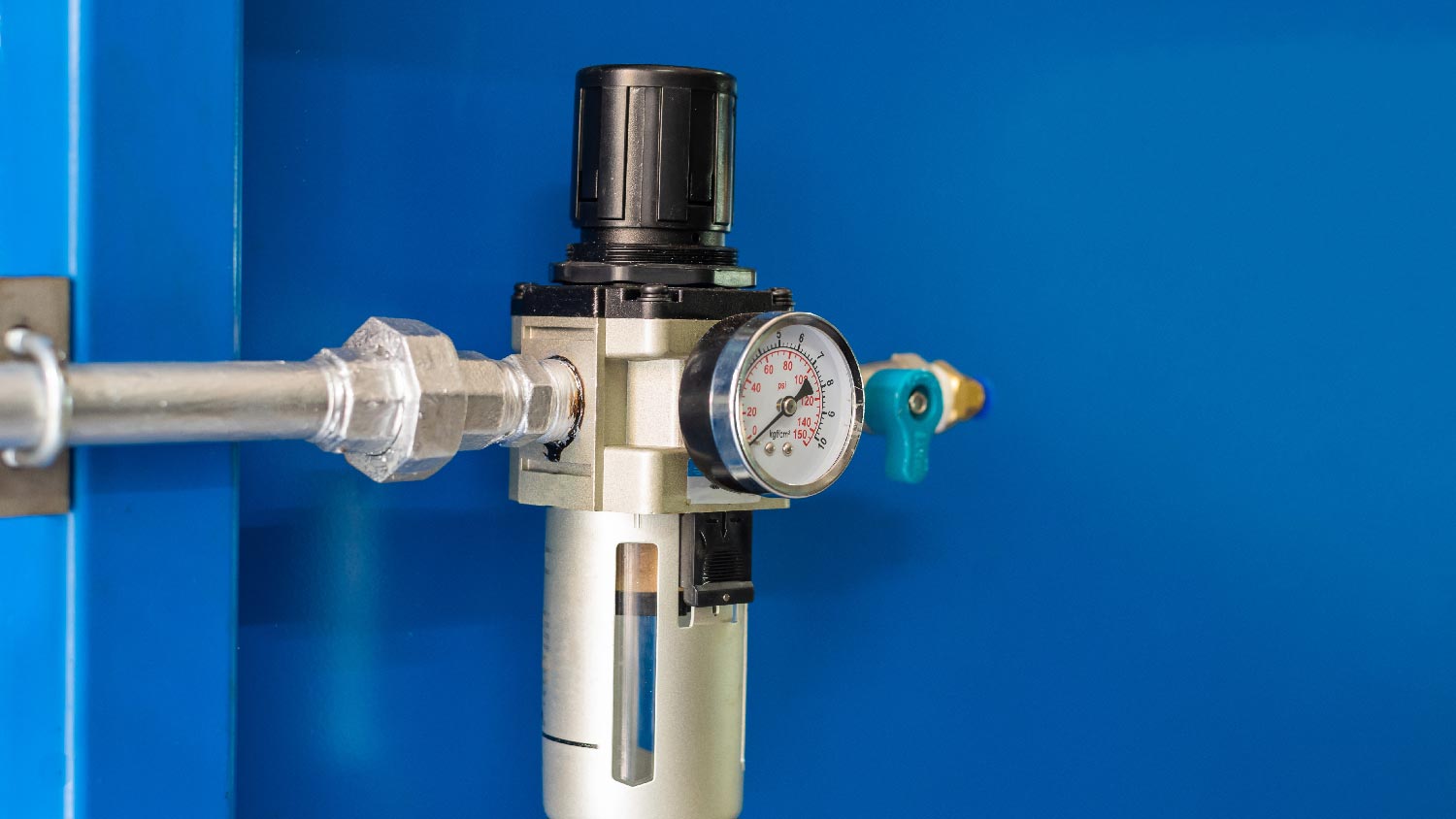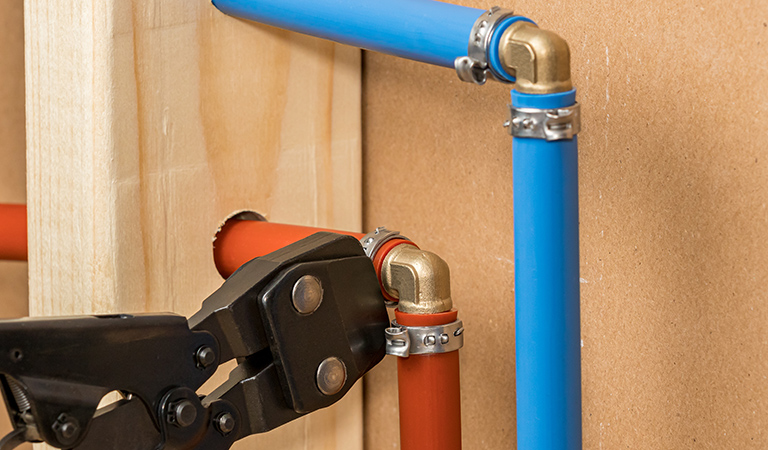
The cost to replace cast iron pipes depends on many factors, like size and accessibility. Use this guide to get a rough idea of how much you’ll spend.
Main water line replacement costs in Boston run $1,658 on average. The typical range is from $450 to $4,500, depending on factors such as length, materials, and the installation method.


Your main water line replacement cost in Boston depends on its length, materials, and installation specifics.
The average cost range for the job is between $50 and $150 per linear foot.
Boston homeowners enjoy an average cost for the task that's below the national average.
Copper, PVC, and PEX are the most common main water line materials in the Boston area due to their durability.
While the cost of living in Boston is higher than the national average, if your home's main water line requires replacing, you may be in luck. The average cost for the job is below the national average at $1,658, with a typical range of $450 to $4,500. Tunneling-friendly soil factors in the area play a role in the ease, efficiency, and cost of installation.
The primary factors determining the cost of your main water line replacement are length, materials, and the method of installation. Your local plumber is the best resource when choosing who to call if your water main breaks, as they'll know the best replacement method and materials, based on having local knowledge of the soil and its conditions.

The distance between your home and the city's water supply pipe is a significant cost factor when replacing your water main. The water main's length is the multiplier that determines the total costs of many of the other pricing factors. Expect to spend between $50 and $150 per linear foot for most replacements and up to $250 per linear foot for particularly challenging ones.
Boston is cold in the winter. For that reason, your Boston home's main water line requires installation at least 48 inches below ground level to keep it from freezing. Your contractor can use one of two methods to achieve that depth, including digging a trench or tunneling from the city's water supply line to your home.
Trenching is the more costly option, while trenchless installation involves creating a bore hole, or tunneling, which is faster, more budget-friendly, and less intrusive. Fortunately, much of the Boston area has soil that's friendly to the trenchless method.
| Installation Method | Average Cost Range (per linear foot) |
|---|---|
| Trench | $50–$150 |
| Trenchless | $75–$250 |
While the cost of materials for your main water line replacement is less significant than other factors, it does make a difference in the job's cost. Because Boston has only slightly acidic soil in most locations, corrosion is less of a concern than in other cities. Copper, PEX, and PVC are the most common material choices.
| Material | Cost (per linear foot) | Pros | Cons |
|---|---|---|---|
| Copper | $2–$10 | Durable, freeze-resistant | Costly, susceptible to corrosion in acidic soil |
| PEX | $0.40–$2 | Budget-friendly, flexible, freeze-resistant | Requires special fittings |
| PVC | $0.50–$5 | Budget-friendly | Susceptible to various damages |
| Cast Iron | $2–$10 | Durable, freeze-resistant | Outdated, rusts, susceptible to corrosion, costly |
| FRP | $5–$10 | Durable, freeze-resistant | Costly |
Accessibility, or how easily your installers can reach the installation location, plays a crucial role in the cost of water line replacement. Landscaping obstacles, driveways, sidewalks, boulders, and tree roots in the way can all create installation challenges and increase the job's cost.
Surface obstacles have less of an effect on the cost of trenchless installation, but can still play a role. Expect to pay higher installation costs where these obstacles exist or if trenching is necessary for all or part of the job.
After your new main water line is in place, your installer will need to connect it to your home's water system and the city's. While these costs will be part of your pricing estimate, unforeseen challenges can increase the job's cost. Expect to spend an additional $300 to $1,000 if your home's main shut-off valve requires replacing to accommodate the new line.
Replacing your home's main water line isn't suitable as a DIY task and requires the specialized tools and experience of a water main expert in the Boston area. Additionally, depending on the installation specifics, you may also need other services to complete the job.
The labor cost of replacing your water line in or around Boston is lower than the national average, despite the area's elevated cost of living. Expect labor costs to make up between 35% and 60% of the total job cost, or between $18 and $90 per linear foot, on average.
Your contractor is responsible for obtaining the plumbing permit for replacing your home's main water line and will handle all of the subsequent inspections. While the permit price is part of your pricing estimate, it's essential to know that its cost ranges from $100 to $500, depending on the project's scope.
If your home's main water line replacement requires trenching or temporary alteration of your landscaping, or your home's foundation requires repair during or after the task, you may require one or more of these additional services.
Landscaping costs: $1,250 – $6,300
Driveway contractor costs: $3,100 – $7,400
Foundation repair costs: $2,200 – $8,100
Because your home's water main is an essential feature of a properly functioning house, homeowners won't experience much of an ROI for replacing it when necessary. However, failing to replace or repair a faulty water line can hurt the home's resale value. Additionally, promptly fixing existing water main line issues can reduce the chances of experiencing expensive damage to the house, its foundation, or the landscaping.
Home is the most important place on earth, which is why Angi has helped more than 150 million homeowners transform their houses into homes they adore. To help homeowners with their next project, Angi provides readers with the most accurate cost data and upholds strict editorial standards. We’ve surveyed thousands of real Angi customers about their project costs to develop the pricing data you see, so you can make the best decisions for you and your home. We pair this data with research from reputable sources, including the U.S. Bureau of Labor Statistics, academic journals, market studies, and interviews with industry experts—all to ensure our prices reflect real-world projects.
Want to help us improve our cost data? Send us a recent project quote to [email protected]. Quotes and personal information will not be shared publicly.
From average costs to expert advice, get all the answers you need to get your job done.

The cost to replace cast iron pipes depends on many factors, like size and accessibility. Use this guide to get a rough idea of how much you’ll spend.

Learn about main water line repair costs in Columbus and what affects pricing to be prepared before you start getting estimates.

Learn how much plumbers cost in Columbus, Ohio. Discover pricing for faucet repairs, pipe work, and emergency services, plus how you can save money.

Is installing a pot filler over the stove worth the cost? We have everything you need to know, including pros, cons, costs, and answers to your common questions.

Find out the average water pressure regulator replacement cost, key price factors, and tips to save on your project. Get transparent, expert-backed cost info.

Discover the average plumbing stack replacement cost, key price factors, and expert tips to help you budget for your home’s plumbing upgrade.